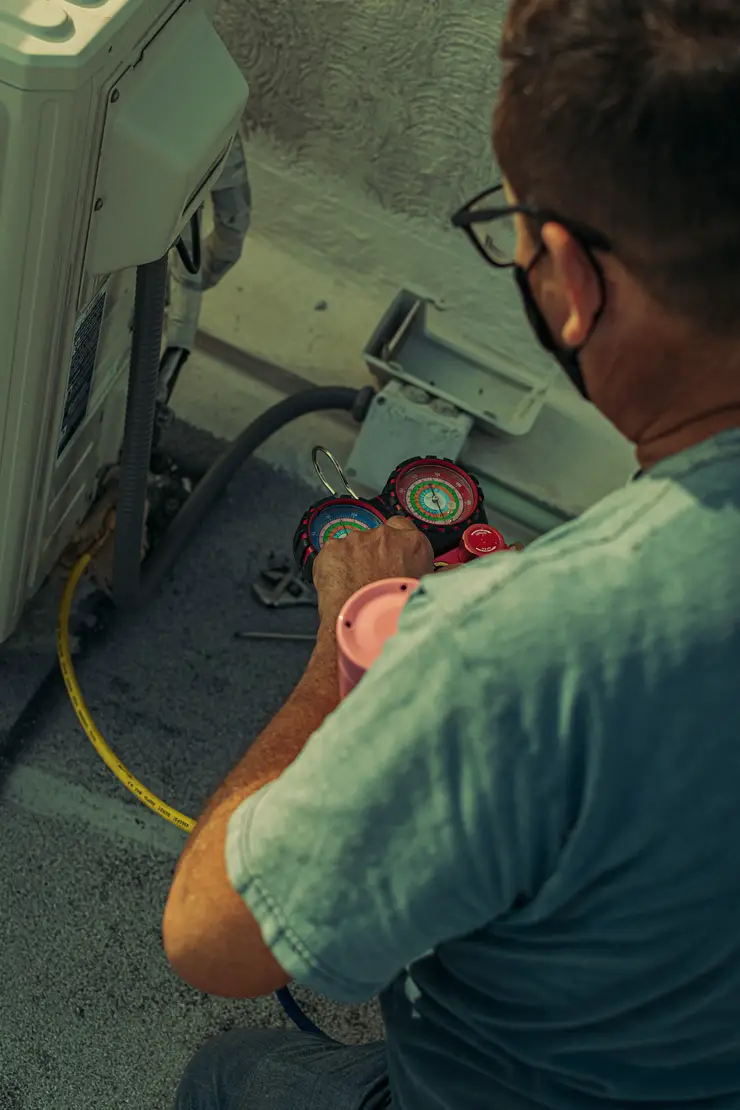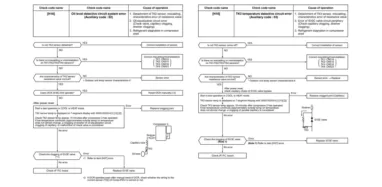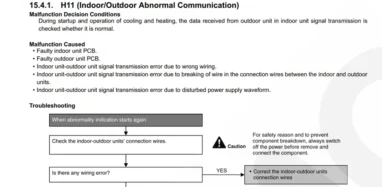Since the inception of heating and cooling systems till now, the demand for HVAC technician services has continued to remain all-time high, which has led to people all over the world striving to acquire the necessary education and skills required to be professional in the field. However, just like any other job, HVAC technicians are exposed to some risks in the course of carrying out their duties.
As a result of this, before embarking on their training, intended HVAC technicians often ask, “is HVAC a dangerous job?” “Is HVAC a tough job?”. Took my time to research these questions, as well as 4 useful tips on how to prevent HVAC accidents, and decided to share my discoveries in this guide. Pay special attention to tip no 2 as it has proven to be the most effective. Keep reading for details.
Who is an HVAC technician?
HVAC is an acronym for ventilation, heating and air conditioning. An HVAC technician is a person who after going through certain training becomes qualified to install, maintain, and repair heating, air conditioning, and refrigeration system which regulates the air quality and temperature of a building.
Even though most technicians are trained along the lines of heating, air conditioning, and refrigeration system, most times, they tend to tilt towards one particular line. Some HVAC technicians specialize in dealing with special equipment like solar technology systems, commercial refrigeration, or water-based heating system.
What does the job of an HVAC technician entail?

There are lots of activities that are involved in an HVAC technician job and this job may vary based on the area of specialty, engagement, and position. However, their job cannot fall short of any of the HVAC-related issues that will be listed below.
- Replacement or repairing faulty equipment.
- Tracing and fixing leaking testing pipes or tubing joints.
- Studying blueprint and specifications.
- Balancing the HVAC system by making necessary adjustments to the system control.
- Linking the HVAC equipment to fuel, refrigerant sources, or water.
- Mounting, assembling, and positioning of HVAC equipment.
- Installing and connecting thermostat, humidistat, and timer.
- Preparing the layout, design, and installing low voltage electrical wiring.
- Drilling holes in building structures.
- Electrical circuit or component testing.
Is HVAC a safe job?
Yes, HVAC is safe. However, you need to know that as an HVAC technician, you will be dealing with electrical components, and sometimes you may have to do some climbing with heavy equipment which could be potentially dangerous if not rightly done. Nonetheless, you should remain steadfast in your resolution to become a professional HVAC technician because regardless of the hazard that it is still safe as long as you put certain precautions in place.
Is being an HVAC technician dangerous?
Yes, an HVAC technician is dangerous. Confused right? Well, that’s quite understandable considering that I just said the HVAC job is safe. Yes, I did say HVAC is safe, but that does not eliminate the fact that you will be exposed to some life-threatening risks while carrying out your daily job requirements. However, these on-the-job risks can be ameliorated if you put certain preventive measures in place.
The risk of an HVAC technician
Although as an HVAC technician, there are several arrays of potential career opportunities for you to explore. However, with these opportunities come some risks that you will be exposed to in the line of your job. These risks are detailed below so that you can learn them beforehand and take the necessary steps to avoid them.
1. Fatigue
HVAC technicians are one of the most overworked professionals in the service industry. Even though HVAC is a physically demanding job, sometimes technicians may have to spend up 60 or more hours on the job. This is always tiring and may cause them to make some mistakes that could put them or their clients at risk. Some of these risks include Overlooking leaks, wrong wire connection, and many more.
2. Electrocution
Every technician whether expert or novice, careful or not are always at the risk of being electrocuted. This is because often have to work with electricity and wiring. Electrocution can lead to internal injuries, burning, and in some extreme cases, death. What makes this hazard one of the most dangerous hazards a technician may be exposed to is that it happens instantaneously with no signal or warnings. Therefore, technicians must fully understand this risk and be vigilant to avoid this deadly risk.
3. Exposure to toxic chemicals
Most times technicians are always having to deal with ductwork and inspection of insulators to find possible areas for drafting. Insulators are made of asbestos, and as a result, they are highly resistant to heat. When the vermiculite in insulation combines with asbestos, it gives out toxic chemicals that can cause lung cancer, mesothelioma, asbestosis, and other lung diseases.
Should HVAC technicians buy insurance?

Yes, HVAC technicians need to buy insurance. I think it is high time we faced the reality that no one is perfect and anyone can be a victim of an on-the-job accident. In the case of such happening, insurance will help the technician reduce the cost of accidents and mistakes and get him back on his feet sooner than expected.
What kind of insurance does an HVAC technician need to have?

HVAC technicians need to have certain insurance policies in place to protect their lives and properties against risk. Some of the insurance every HVAC technician is expected to have includes the following;
- General Liability insurance
- Workers’ compensation insurance
- Tools and equipment insurance
- Commercial auto insurance
- Commercial property insurance.
HVAC insurance cost
The cost of HVAC insurance differs depending on the risk and type of insurance you signed for. Details are provided below about how much it will cost to effect each type of insurance policy every year.
- General liability insurance – $1500 to $8000
- Workers’ compensation insurance – $6000 to $9300
- Commercial auto insurance – $1000 to $4000
- Required surety board – $100
- Commercial property insurance – $500 to $2000
- Professional liability insurance – $500 to $1000
- BOP – $1400 to $3700
- Umbrella insurance – $500 to $6000
Is HVAC a tough job?
Yes, HVAC is a tough job. Although the process of becoming a professional HVAC technician is not difficult especially when you have electrical, customer relation, and mechanical knowledge. The tough stage is the implementation stage where you will have to face the reality of dealing with difficult manual work outdoors even during bad weather. Sometimes you may have to work in small spaces under hot or cold conditions, or you may have to climb buildings with heavy equipment. These are some of the activities that may make the job tough.
Is HVAC a stressful job?
Yes, HVAC is a stressful job. As a technician, you may have to go through stressful working times of about 40 hours or more per week replacing or repairing furnaces. This task is usually challenging and may be difficult for a would-be technician to cope with.
Does HVAC pay well?
Yes, HVAC pays well. Even though HVAC may be both physically and mentally demanding, the charges clients pay for the service make the effort worthwhile. Although charges may vary based on the technician and services rendered. However, technicians may charge between $80 to $250 for the first hour of their service and charge between $50 to $125 for subsequent hours.
How to prevent HVAC accidents
Now that we have learned the various hazards HVAC technicians are exposed to on the job, it is important to also know to you protect yourself against these hazards. Check below for these preventive methods.
- Always switch off the power on the breaker panel circuit.
- Make use of lockout practices and tag procedures to prevent power from being reactivated while you are working.
- Make sure that the circuit you are working on is not live by heating them with a meter.
- Get general liability insurance to help ameliorate your loss in case of mistakes


